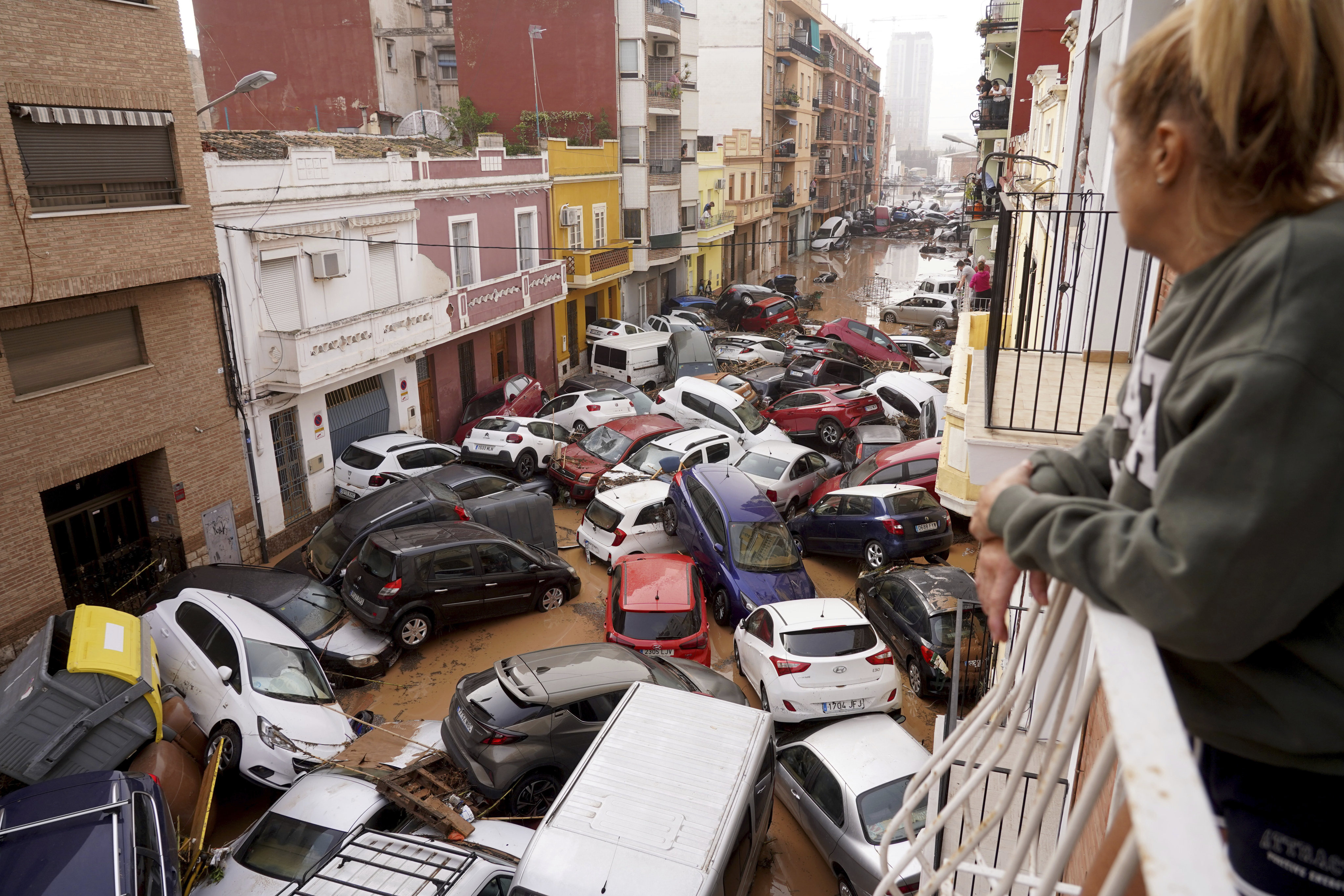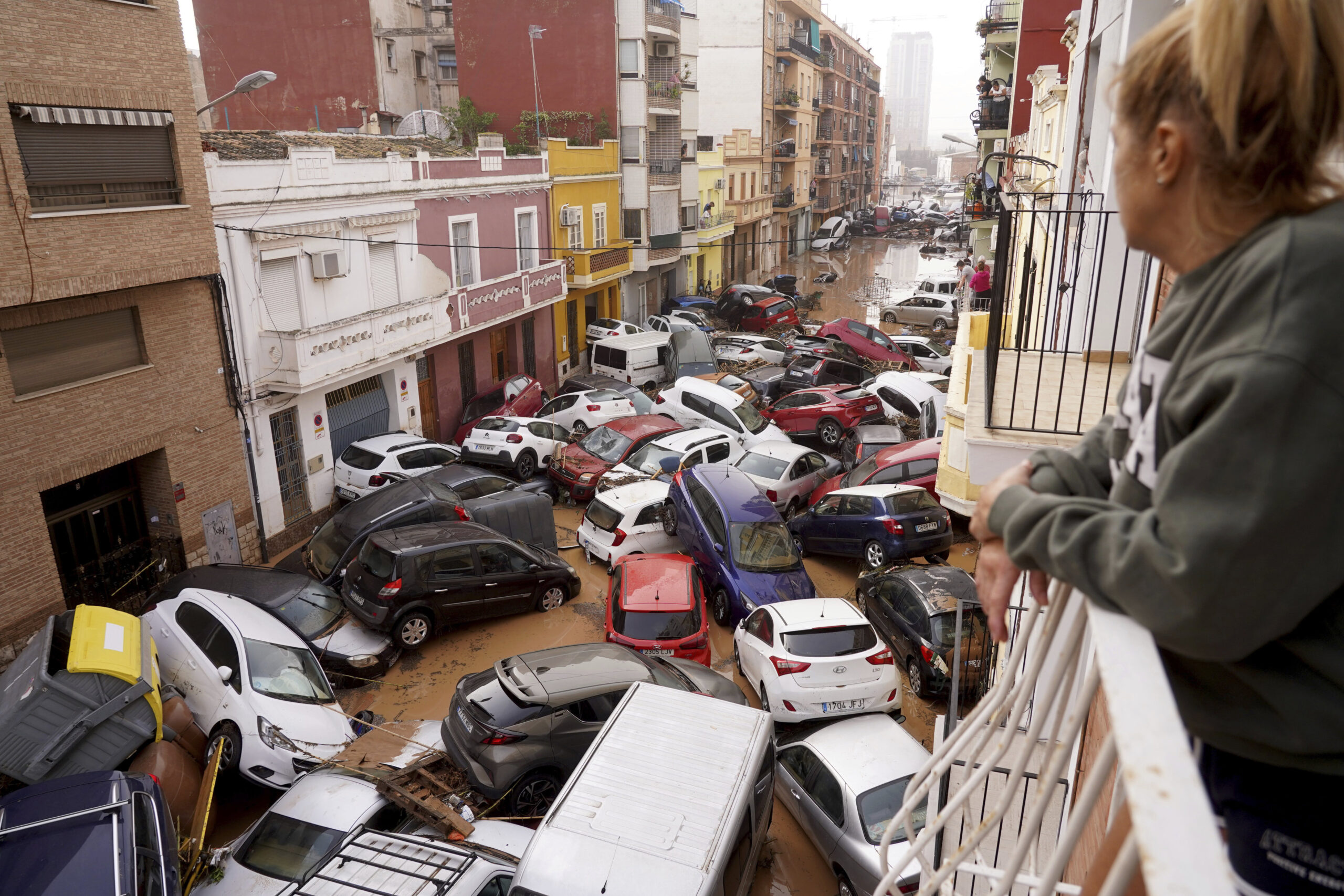
Severe Storms Batter Spain Again
Spain is grappling with a new wave of severe storms that have led to widespread school closures and train cancellations, just two weeks after devastating flash floods in Valencia and its neighboring regions. The recent disasters have claimed over 220 lives and destroyed thousands of homes, leaving the country in a precarious situation as it braces for more rainfall.
Heightened Alerts in Valencia
Coastal areas of Valencia have been placed under the highest alert level as forecasters predict that up to 7 inches of rain could fall within just five hours on Wednesday evening. This alarming forecast has raised significant concerns among local authorities and residents alike, particularly as cleanup efforts continue in regions still reeling from the effects of the catastrophic storms that hit on October 29.
The cleanup operations have uncovered streets still covered in mud and debris, complicating the process as more rain threatens to exacerbate the already dire condition of the infrastructure.
Impact in Malaga Province
In Malaga province, the storms have caused widespread inundation, leading to the evacuation of around 3,000 residents living near the Guadalhorce River as a precautionary measure against rising waters. Authorities have suspended schools and many local businesses, further compounding the difficulties faced by the residents. Train services between major cities, including Malaga and Madrid, as well as routes connecting Barcelona and Valencia, have also been halted, leaving many stranded.
In an effort to mitigate risks, Valencia’s regional government has restricted private vehicle use in areas most affected by the previous storm, where floodwaters left significant damage to cars and property.
Weather Alerts and Ongoing Challenges
As of the latest reports, no fatalities have been linked to this current round of storms. However, the Spanish weather agency AEMET has issued a red alert for Malaga, noting that around 3 inches of rain fell within a single hour, indicating the severity of the situation.
Additionally, parts of Tarragona province in eastern Spain are experiencing similar alerts due to heavy rainfall, raising concerns about widespread disruption throughout the region.
Disruptions to Sporting Events
The severe weather has not only impacted everyday life but has also caused delays in significant sporting events. The Billie Jean King Cup tennis finals between Spain and Poland, scheduled for Wednesday, experienced postponements due to the adverse weather conditions affecting travel and logistics.
The Science Behind the Storms
Experts attribute the storm system affecting Spain to the collision of warm air masses with stagnant cold air, which creates the conditions for the formation of strong rain clouds. Meteorological phenomena such as these have become more frequent and intense, a troubling trend linked to ongoing climate change.
Climate scientists warn that the cycles of drought and flooding are becoming increasingly severe, posing significant risks to communities across Spain. As these weather patterns continue to evolve, the nation faces an urgent need to build resilience against future storms.
A Community in Crisis
The ongoing storms present not only environmental challenges but also social and economic implications for the people of Spain. Many communities are still in the throes of recovery from previous disasters, and the prospect of new storms complicates their efforts. The psychological toll on residents who have already endured significant hardship cannot be underestimated.
Local governments are mobilizing resources to address immediate needs while also beginning to strategize for long-term recovery and resilience. The impacts of climate change necessitate a reevaluation of disaster preparedness and infrastructure investment across the country.
Conclusion
As Spain faces another round of severe storms, the lessons learned from past disasters will play a crucial role in shaping the response strategies moving forward. With climate change expected to drive more extreme weather events, proactive measures will be vital in safeguarding lives and property. The resilience of the Spanish people will be tested once again, and the nation’s ability to adapt will be crucial in navigating the uncertain climate future.




















